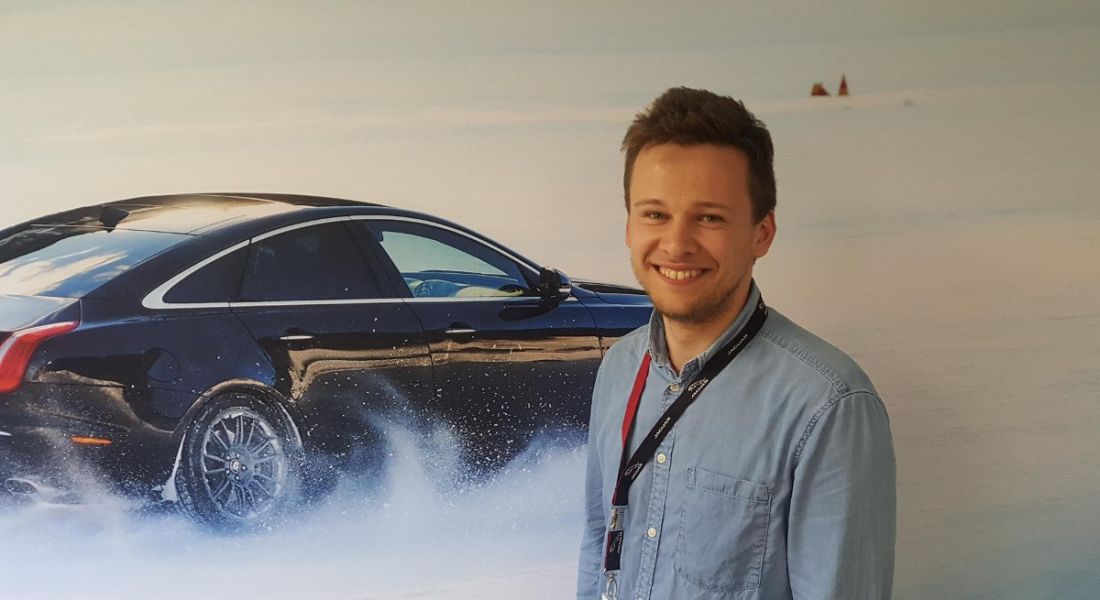It’s not easy to stay on top in an industry as crowded and competitive as the automobile sector, but Jaguar’s team has come up with some novel ways of doing just that.
As we’ve written about extensively here on Siliconrepublic.com, it really is an amazing time to be an engineer.
The role has always come with the promise of a healthy salary, good benefits and relative ease finding work after leaving college, but massive technological advancements coupled with new innovations in how engineering teams should work mean that it’s a wonderful time to be kicking off your career.
We spoke to Gido van Wijk, a software engineer at Jaguar Land Rover, about finding his way to the company after completing his master’s degree and about what his working day entails.
What did you study in college?
I did a master’s in electronics and embedded systems.
With this programme, are you now working in your desired industry?
If the desired industry is software engineering, then yes. I wasn’t specifically aiming for the automotive industry but, with all the technology involved in modern cars, it is a perfect place to grow as a software engineer.
What drew you to Jaguar Land Rover when you were seeking work as a graduate?
A few things drew me to Jaguar Land Rover Ireland – the location of the office, the dynamic environment (the Ireland site was in the middle of setting up at the time) and the challenging and exciting projects I would get to work on. Also, I liked the cars.
What expectations did you have before you began the programme?
I was expecting to work on new automotive technologies, learn about the automotive industry and its specifications, and write code to make ECUs (engine control modules) work.
What duties and responsibilities were you given initially?
I started working on my current project almost straight away, and was one of the first to join that team, so my initial work was all about writing the base software the component is relying on.
Did the scope of your work change as the programme progressed?
As with most industry software, it needs to be tested and fully verified to make sure it works as expected. My work changed from writing the core software to a more integration/test-oriented scope.
Moreover, I had the opportunity to interview new candidates as we’re hiring a lot of talented people, but also attend college-organised career fairs.
Can you describe a typical day in your role?
We follow the Agile and Scrum development processes, which consists of two-week ‘sprints’ (a sprint is a set of tasks that need to be developed during the sprint time) and daily stand-ups.
A typical day for me would thus be working on my tasks, reporting my work at our daily stand-up, checking some emails and participating in the team’s Agile process.
How do your responsibilities compare to more experienced employees’?
In my team, we are all writing code for the same software component and everyone is responsible for reviewing and testing code of other developers to make sure we are delivering good code. It is then up to the tech lead of our team to finally integrate the reviewed code in the main build.
Do you feel more prepared for working life after completing this programme?
It wasn’t really a programme I was on, but working as a graduate at JLR Ireland is definitely a good way to learn a lot of things on the overall development process and the automotive industry as well as technical skills.
Why should someone apply to the graduate programme at Jaguar Land Rover?
You should apply because there are plenty of things to learn, many challenging projects and a lot of talented people that will be happy to help you and teach you some things on the way.
Want to work at Jaguar Land Rover? Check out the Jaguar Land Rover Careers page for current vacancies.




